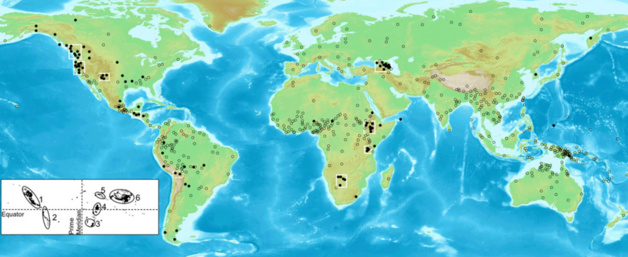The sounds of different languages could have been formed due to the geography of the places where these languages are spoken, according to a study published in the magazine PLOS ONE, by the researcher Caleb Everett, of the University of Miami (USA).
Everett compared the sounds used in around 600 languages of the world with the regions where these languages are spoken, and he found a correlation between the altitude of the region and the pronunciation.
“According to the results of the study, the ejective consonants, which are pronounced through the compression of air in the mouth –and not through pushing air with the lungs– are much more common in places with high altitude”, has declared Everett.
The work locates this phenomenon in places such as the North American Cordillera, in the Andes, across Africa and the Caucasus, and in languages such as Aymara –Amerindian language of the South American Plateau– and Quichuan –family of languages native to the Andes–.
This research suggests that, contrary to popular linguistic belief, geography affects the structures of sounds of the languages, that is to say, the phonology.
More information
Everett compared the sounds used in around 600 languages of the world with the regions where these languages are spoken, and he found a correlation between the altitude of the region and the pronunciation.
“According to the results of the study, the ejective consonants, which are pronounced through the compression of air in the mouth –and not through pushing air with the lungs– are much more common in places with high altitude”, has declared Everett.
The work locates this phenomenon in places such as the North American Cordillera, in the Andes, across Africa and the Caucasus, and in languages such as Aymara –Amerindian language of the South American Plateau– and Quichuan –family of languages native to the Andes–.
This research suggests that, contrary to popular linguistic belief, geography affects the structures of sounds of the languages, that is to say, the phonology.
More information



 English
English



